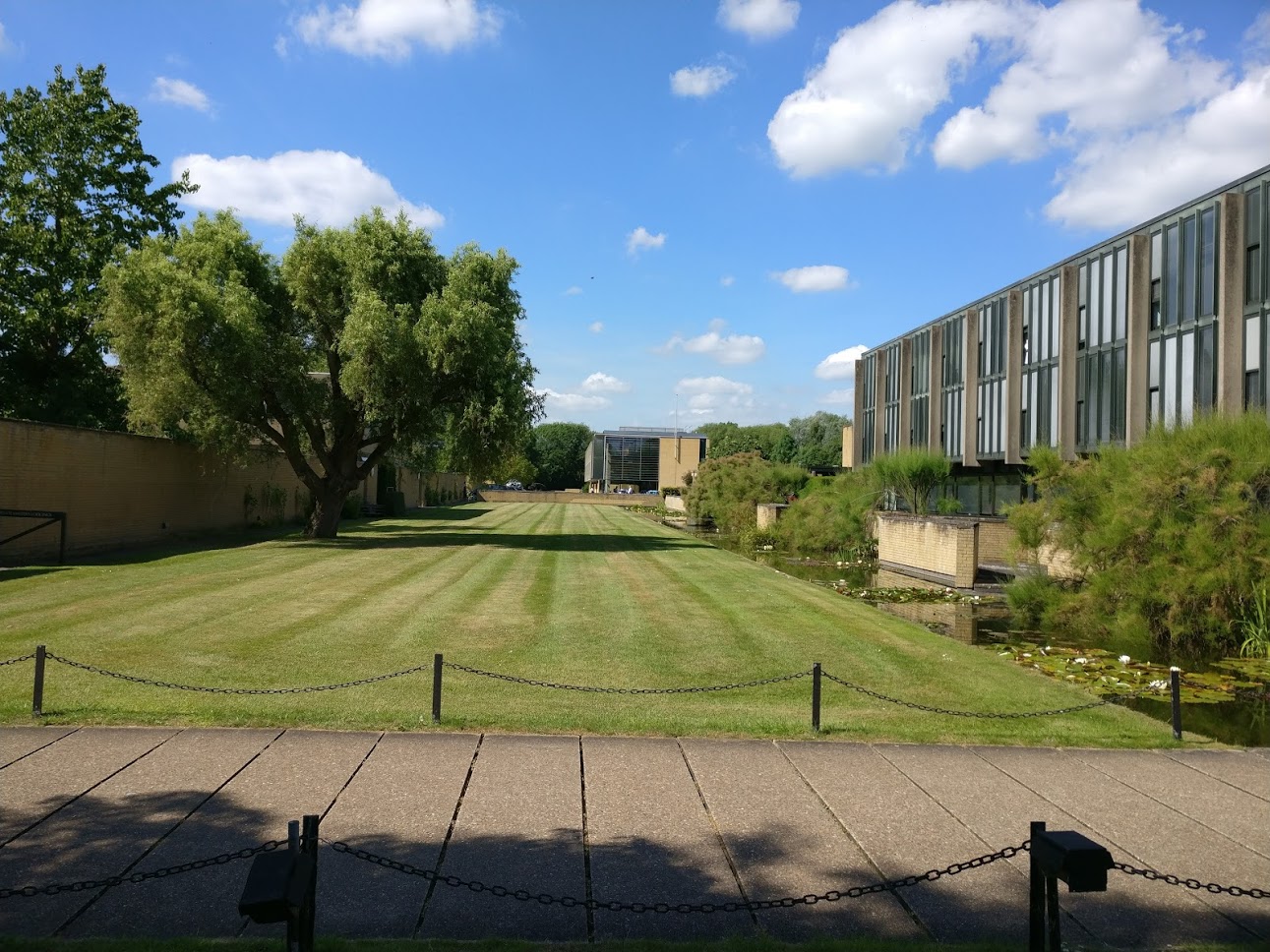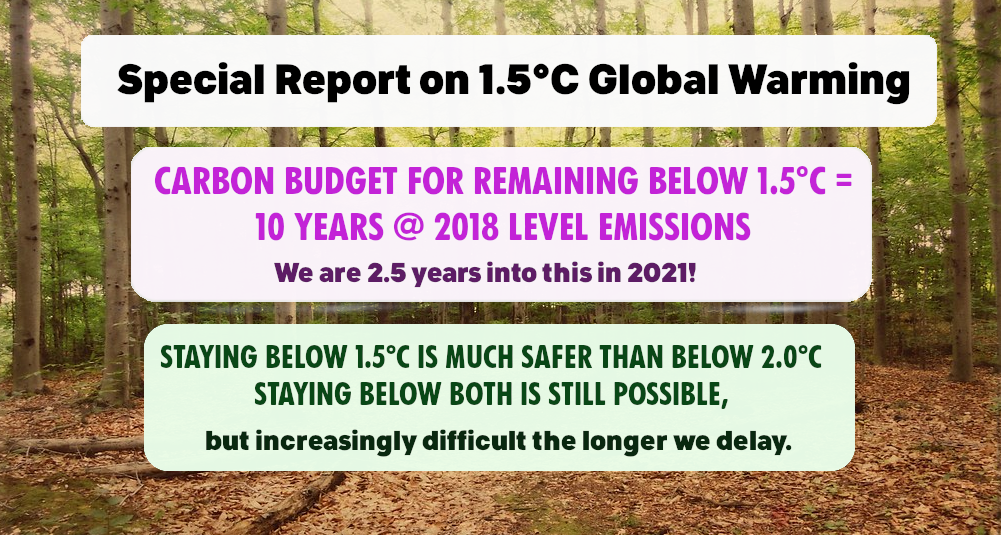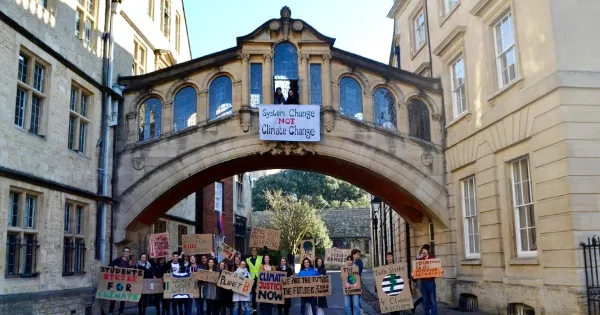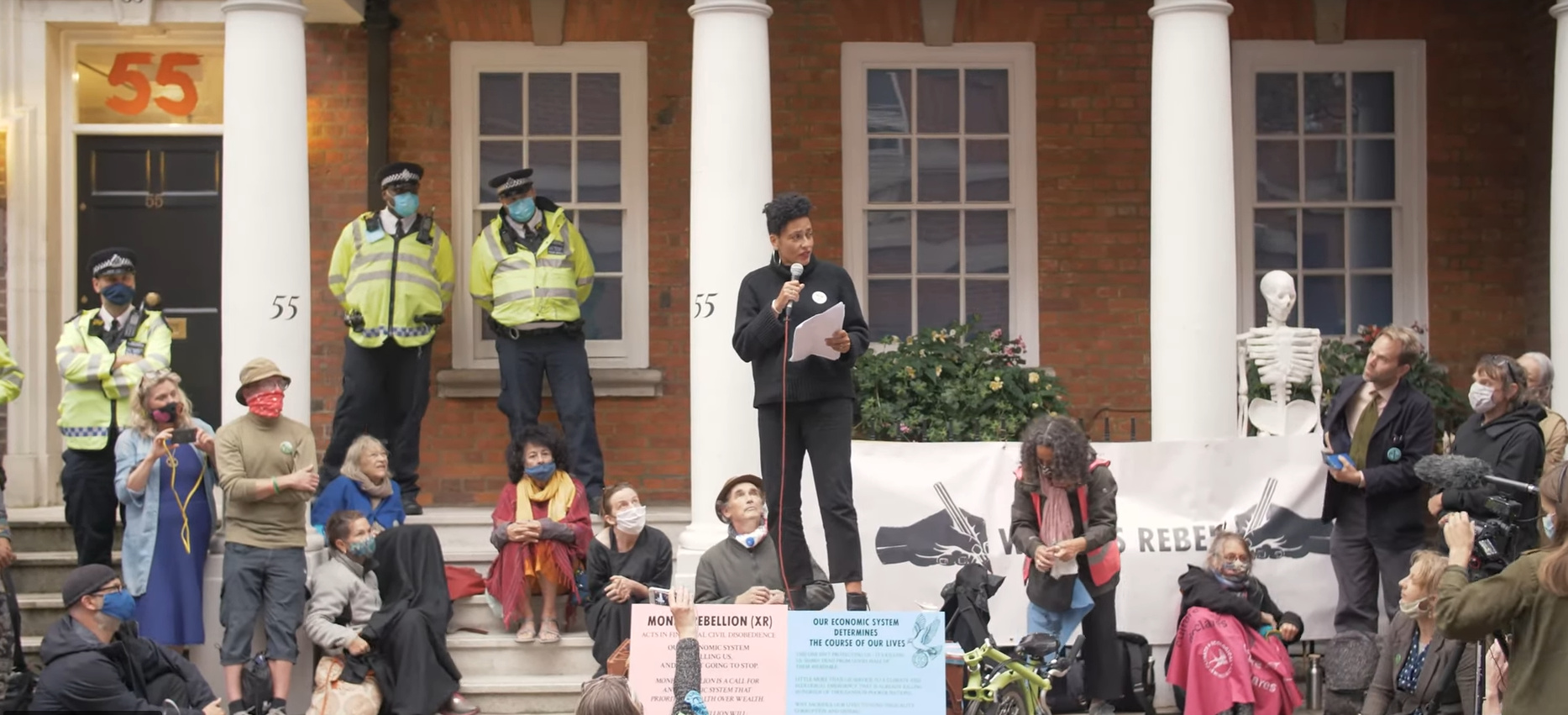A Physicist's Guide to Climate Activism
This blog post is my own reflection on key moments that brought me to climate activism. Why I think actions from young people today can change the course of the future.
Pre-uni (2013-2015)
Whilst studying for A-Levels, I had very little engagement with environmentalism, labour movements, and justice campaigns. This was before the global youth strike 4 climate movement.
At my sixth form I helped organise an “eco club” - we didn’t really have much of an impact on anything as far as I remember, but focused on discussing individualism - how “we” could make the difference if we convinced enough people to make small changes to their lives.
I went vegetarian, we talked about cycling and walking, calculating carbon footprints. It definitely got me thinking about my own impact, how my own daily routine such as getting to college by car was carbon intensive (and avoidable if I quadrupled the journey time by taking the bus).
There was no sense of urgency on my part, or anyone else’s. “Global warming” was something distant, that might harm some of the environment and probably be more dangerous in the future, but I don’t think any of us as young people had a great idea of how it would impact people in the near future, the extreme dangers posed in future decades, a sense of fear or guilt or anger.
University years 1-3 (2015-2018)

St Catherine's College. Positioned slightly away from the concentrated city centre, surrounded by meadows and woods, living in the only Scandinavian designed Oxford college provided a peaceful backdrop for vibrant student life.
I started my 4 year physics degree at St Catherine’s college Oxford in October 2015. I don’t think I engaged in environmentalism or other campaigns at all in my first year, focussing more on fitting in and studying hard.
Towards the end of the second year I began attending a student run reading group with Worker’s Liberty. I had joined in order to attend their 4 or 5 week long course on climate change1. I didn’t understand all of the reading material that well - it was academic and used words and concepts I was unfamiliar with.
But some of those ideas stuck. “The metabolic rift between nature and society” - how capitalism views nature as something that can be exploited, without understanding the harms such as soil degradation. This was stuff first being discussed by Marx in the 19th century!
We discussed ideas ranging from how we should celebrate the 100th anniversary of the Russian revolution given the legacy of the USSR, to the growing inequality experienced in countries like the UK, and the global inequalities fostered by neocolonialism. These concepts weren’t familiar or all easy to grasp, I had to read and discuss a lot to understand their meaning and context. Looking back, these reading groups left a lasting impact on my view and understanding of the world.
Meanwhile, I had become vegan due to my concern for both the environment and the cruelty faced by farmed animals. I wanted to take an individual stance that reflected the overconsumption associated with meat based diets. I did some leafleting and on the street engagement with a few different vegan charities, and this helped show me the power of talking to people. Whilst many passersby ignored us, or even made jokes or insults, some people had genuine heartfelt conversations, would question the impacts of their own diet on animals and environment, and seriously consider changing. Some members of the public would even come up to us to say that they had recently become vegan!
After three years of university I didn’t consider myself anything of an “activist” or “protester”. I had taken part in some leafleting, for veganism, and door knocking for labour in the 2017 general election. Like many other students, I was interested in politics and ethics, but limiting my actions to mostly my own individual changes and encouraging others to do the same.
Entering my final year of University (Late 2018)
The period October to December 2018 was a transformational moment in my life. I was in my final year, I would write a thesis on climate change effects of clouds and aerosols. I was greatly concerned about the environment, about issues of global inequality, and the belief that a new social system based on democracy, shared ownership, and solidarity should replace our existing system of class division, exploitation, and environmental destruction.
A couple of weeks into my first term of 4th year, on 18th October, I attended a seminar by Prof Myles Allen, who had previously been my lecturer for the optional module “Climate Physics”, and who had previously been lead author and review editor of several IPCC reports. The IPCC had released a report 10 days earlier “Special Report on 1.5℃”2.

Two key conclusions from the IPCC report on 1.5°C of Global Warming
The seminar really shocked me - there was a dramatic difference in the impacts of climate change depending on whether we began reducing emissions now, or waited 5 or 10 or more years. And every year we waited meant either committing to much more rapid reductions in the future, or a significantly hotter and less livable future planet.
Over the following weeks I was increasingly convinced that individuals wishing for climate action would get nowhere. Oil companies, governments, businesses, universities, they had failed for years to make a reasonable response to climate change. This was a Climate Emergency and individualism was no longer enough. I had to act.
I attended another talk on the IPCC report, this time in the Oxford Sheldonian theatre, with a speech by former UN Executive Secretary Christian Figueres who talked of the need for hope3. She gave an uplifting and motivating speech on how optimism can benefit climate action. She argued why morally we cannot let the world reach 2.0°C.
Reflecting again too on Myles’ speech, these speakers had announced the unfolding of terrible crises - there is a climate emergency! But they wanted to “fix” it within the constraints of neoliberalism. They wanted to avoid “business as usual” emissions, whilst promoting “business as usual” as the solution. This is an attitude promulgated to this day by conservative politicians in the UK, by COP26 president Alok Sharma, by established news media, and in wealthy nations.
They want “green growth” and as yet un-invented techno-fixes to solve the climate crisis. In mainstream communication of climate change, there is scarce mention of global inequalities, the legacy of injustice from colonialism, the ongoing destruction of nature and people in the global south by fossil fuel companies. Mainstream communication fails to address the real emergencies we face locally and internationally due to climate change and as a consequence of government made economic and political decisions.
But there is plenty of “net-zero” by 2050 airport expansion (where emissions from planes are not included in calculations!), planning of new coal mines (don’t worry, we’ll plant a bunch of trees or something, that’ll work), building of new roads (haven’t you heard, electric vehicles phased in over coming decades are good for the environment, just please ignore the inefficient waste of resources needed for individual car ownership, and you can forget about any communist plots for new walking and bus routes!).

Youth Strike 4 Climate, and Oxford Climate Justice Campaign members set off from the iconic 'Bridge of Sighs' for a climate protest in Bonn Square.
During this time, I joined the Oxford Climate Justice Campaign, and was involved in campaigning for fossil fuel divestment of the Oxford Endowment Fund (OEF), and divestment of my college. To this day, St Catherine’s still invests into oil, coal, and gas, but since I graduated the OEF has finally divested its £2.6 billion fund from fossil fuels4.
As well as the OEF, lots of individual colleges have divested too, and many other UK universities. Organisations like the National Trust & the Rockefeller fund, have divested their own financial assets worth billions. This has happened largely as a response to public campaigns highlighting the hypocrisy of caring about climate change whilst investing in the destructive practices fueling it.
Around the same time, on 17th October, Extinction Rebellion was formed, holding a sit in at Greenpeace “to encourage members to participate in mass civil disobedience as the only remaining alternative to avert catastrophe”.
Joining Extinction Rebellion (2019)
Up until now, I hadn’t heard of Extinction Rebellion, or their involvement in London late 2018, where they blocked bridges to demand the government “Tell the Truth”, “Act Now”, and “Go Beyond Politics”.
At some point in the new year I caught wind of Extinction Rebellion, and in February I attended a talk featuring scientists and journalist George Monbiot held in a large church in Oxford. I struggled to find a seat, having to sit near the back on the upper floor. People young and old, children and parents had turned up to hear what the panel had to say5.
The talk began with the emergency, explaining the scientific evidence, uncertainties, and future impacts. Although I was familiar with much of it from my lectures and from the seminars in October and November last year, it was an emotional experience to see the packed church. The second part of the talk made the case for civil disobedience, including being arrested and what that process could involve. It made the case for hope too, that if we mobilise perhaps 3.5% of the population (a statistic quoted from a social science study on social movements) that we could transform our society into one focussed on reducing emissions to zero within a decade.
This is when I switched from student to student activist. I organised my own talks, setup an XR group near my home, and took part in protests. I joined the April 2019 rebellion which forced the UK Government to declare a climate emergency. We were doing something, all of us, and it was having an impact.
An evolving movement (2020-2021)
Even before the pandemic, the great successes of XR, Fridays for Future, and other climate movements had begun to wane somewhat. Youth strikers had to make a difficult balance between their school lives, competing on social media for the most shares and followers, and engaging with their communities6. XR faced problems with its own strategies - that choosing actions with high risk or intentional arrest was discriminating against those who are treated differently under the systemic racism we live in. The movements weren’t quite dying, but they had stalled and needed new direction, a natural and perhaps foreseeable outcome.
The pandemic changed what we could and could not do. Protest was increasingly criminalised, and organising and activism had to take place largely online. The energy required to do this, whilst all parts of our lives changed in difficult ways meant that we could not continue expanding the movement at the same rate, or bring about the changes we wanted as immediately.

Zadie Smith on grief, protest and lies, outside 55 Tufton Street which hosts thinktanks and lobbying outfits linked to climate science denial and the oil industry - source writersrebel.com
But a lot of energy was usefully spent on imagining a ’new world’ post pandemic. Many activists and groups have adapted to our new normal, running inventive, often though provoking actions, online and on the streets. In the UK a lot of attention has been spent on promoting the “Climate & Ecological Emergency Bill”
- proposed by Caroline Lucas and drafted by scientists, legal experts, ecological economists and environmentalists, it is designed to reverse the climate & ecological emergency that we face. The bill needs a lot more support from MPs in order to pass through parliament.
We know we cannot go back to before, but instead we must come out of this horrible situation making the serious changes needed for an equitable and sustainable future.
What next?
The UK and Italy are hosting COP26 in Glasgow later this year. It is a ratchet year, meaning there is the opportunity for great improvements on current international commitments to emissions reductions.
Now is the most important time to act. Any decisions we make now, reductions in the near future, will have the best impact by happening now rather than later. Every year we wait means a greater reliance on carbon capture (we have a lot less capacity to do this than BP and Shell would have you believe). It means more severe climate impact, and therefore more lives lost. It means greater periods of famine, disruptions to food supply chains. It means more people losing their homes to flooding and rising tides.

“It doesn't have to be like this. Our greatest hopes could become reality in the future” - Stephen Hawking on the importance of communication. The picture shows bifurcation, a mathematical model that can represent the complicated chaotic relationship from present to future - img source: wikimedia
NASA climate scientists, Peter Kalmus, recently posed the question “How many floods, infernos, and dying ecosystems will it take for a critical mass to realize that profit-above-all-else is irreversibly destroying our collective future on Earth?”
